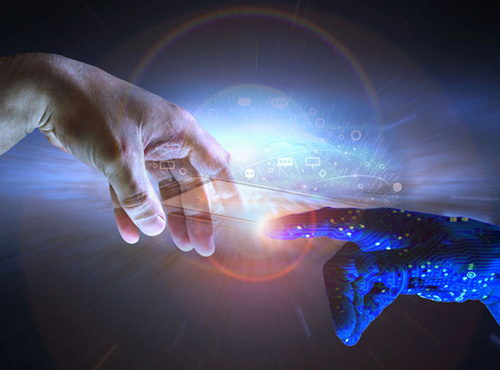Machine Learning
Humans may not be consistent, but machines deliver in every scenario.
Machine learning gives computer systems the ability to "learn" with data, without being explicitly programmed.From the study of pattern recognition and computational learning theory in artificial intelligence,machine learning explores the study and construction of algorithms that can learn from and make predictions on data.
Machine learning is employed in a range of computing tasks where designing and programming explicit algorithms with good performance is difficult or infeasible; example applications include email filtering, detection of network intruders or malicious insiders working towards a data breach, optical character recognition (OCR),learning to rank, and computer vision






.jpg)







.jpg)












